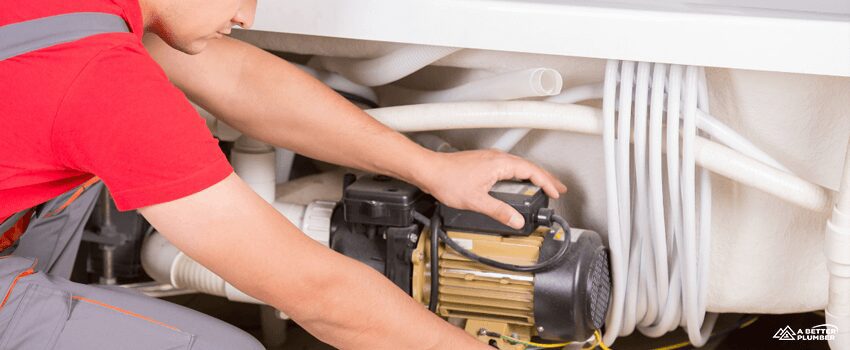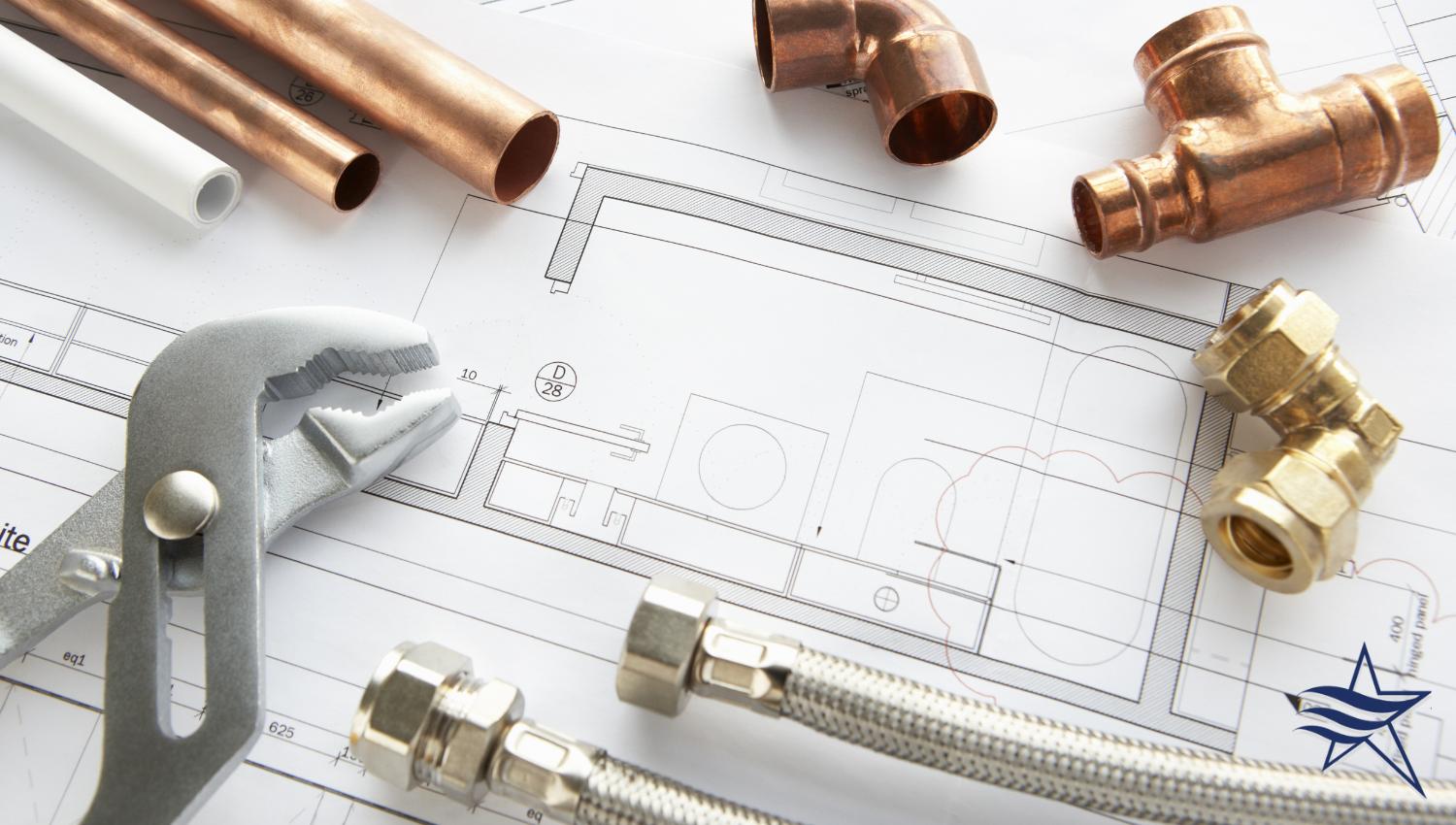Why Buying Repiping Solutions Is Important for Your Home's Pipes Health
Repiping services play a crucial role in maintaining a home's pipes health. Gradually, pipelines can corrode, leakage, or end up being clogged, bring about possible threats and ineffectiveness. Property owners frequently forget the indicators of weakening plumbing, which can cause considerable damage. Comprehending the need for repiping is important. What factors should house owners take into consideration before making this financial investment? The answers may surprise you.
Comprehending the Value of Repiping
While numerous house owners might neglect the significance of repiping, it plays an essential function in keeping the total health of a pipes system. Over time, pipelines can wear away, establish leakages, or become blocked with natural resource, resulting in reduced water quality and circulation stress. Repiping addresses these issues by changing old, damaged pipes with new, sturdy materials, making certain a dependable water supply and lowering the danger of expensive repairs linked with leakages and water damages. Furthermore, contemporary piping products are usually a lot more efficient and environmentally friendly, adding to reduced power costs and improved water conservation. Carrying out a repiping project can improve a home's resale value, making it a prudent investment for house owners. Inevitably, identifying the relevance of repiping enables homeowners to take proactive steps in protecting their plumbing systems and making sure a secure, practical living environment for their households.
Common Indicators That Indicate the Demand for Repiping
Homeowners need to be vigilant for particular indications that suggest the requirement for repiping, as ignoring these concerns can cause a lot more serious pipes issues. One typical sign is the visibility of regular leaks, which can recommend aging or degrading pipes. Additionally, a recognizable decline in water pressure may indicate obstructions or deterioration within the pipes system. House owners might likewise see stained or corroded water, indicating pipeline degradation. Unusual water bills that are markedly more than usual can likewise hint at leakages hidden within the wall surfaces. Furthermore, the growth of mold and mildew or mildew in locations near pipes components can recommend wetness problems stemming from harmed pipes. Ultimately, if the home has old galvanized piping, it might be time to believe about repiping, as this material is vulnerable to corrosion and corrosion. Recognizing these indications early can help maintain a healthy plumbing system.
The Threats of Disregarding Pipes Issues
Overlooking pipes problems can cause significant water damage, which might compromise the architectural honesty of a home. Furthermore, unresolved leaks can produce a setting for mold growth, posturing serious carcinogen to occupants. Attending to plumbing issues quickly is vital to secure both residential property and well-being.
Water Damage Concerns
When plumbing issues go unaddressed, the threat of water damage intensifies considerably. Leakages, trickles, and fractures in pipes can bring about significant water invasion, jeopardizing the architectural stability of a home. Gradually, even small leaks can cause rot, mold and mildew development, and damages to walls and flooring, resulting in costly repair services. Water damages can additionally impact electric systems, creating unsafe problems. House owners typically undervalue the collective effect of tiny leaks, which can lead to prevalent damage otherwise without delay dealt with. Ignoring plumbing issues not just increases the chance of prompt damages but can additionally diminish building value and position long-lasting monetary burdens. Consequently, timely repiping solutions are important to prevent water damages and preserve a healthy home atmosphere.
Health Hazards Rise
Unsettled pipes concerns can cause considerable health dangers within a home. Contaminated water from rusty pipelines can present damaging germs and lead to significant ailments. Mold and mildew development, often a result of leaks and excess wetness, presents respiratory dangers and can activate allergies. Furthermore, stationary water can bring in bugs such as pests and rats, which bring illness that additionally endanger family members wellness. Disregarding these pipes problems not just endangers the security of citizens however can likewise reduce residential or commercial property worth. Subsequently, attending to pipes issues through repiping solutions is vital. Prompt intervention not just safeguards wellness however also guarantees a secure living environment, avoiding more extensive damages and costly fixings down the line.
Various Kinds of Piping Products
Piping products are an essential part in plumbing systems, affecting sturdiness, performance, and total efficiency. Various alternatives are readily available, each with special residential or commercial properties and applications. Copper piping is recognized for its durability and resistance to deterioration, making it a preferred selection for both warm and cool water lines. PVC (polyvinyl chloride) is light-weight, affordable, and immune to chemical damage, primarily used for drain and vent systems. PEX (cross-linked polyethylene) has actually acquired appeal due to its adaptability and simplicity of installment, enabling fewer joints and potential leakage factors. Galvanized steel, though once common, is less beneficial today because of its sensitivity to rust and reduced water flow with time. Each material presents unique advantages and drawbacks, making it essential for house owners to seek advice from pipes experts to figure out one of the most suitable choice for their certain demands and problems. Picking the appropriate piping material can significantly influence the effectiveness and security of a plumbing system.
The Repiping Process: What to Expect
The repiping procedure starts with an extensive analysis of the existing pipes to determine concerns and figure out the very best course of action. Following this evaluation, property owners will require to select appropriate replacement products that suit their pipes needs. A review of the installment process will supply insights right into what to anticipate during this considerable home enhancement.
Evaluation of Existing Pipelines
An exact assessment of existing pipelines is essential for guaranteeing the long-term wellness of a pipes system. This assessment includes inspecting the products, age, and condition of the pipelines, in addition to identifying any indications of corrosion, leakages, or blockages - repipe specialist in houston. Professional plumbing professionals usually use advanced methods such as video clip examinations to acquire a clear view of the pipe's interior without invasive treatments. By recognizing trouble areas early, house owners can protect against additional damages and expensive repair work in the future. Additionally, recognizing the current state of the pipes facilities aids in making educated choices pertaining to necessary upgrades or repiping. Generally, an extensive assessment acts as the foundation for an effective repiping procedure, making sure that the brand-new system satisfies the home's details needs
Selecting Substitute Products
After examining the existing pipelines, home owners deal with the essential decision of selecting proper replacement products for their plumbing system. Typical choices consist of copper, PVC, PEX, and CPVC, each with distinct advantages and disadvantages. Copper is understood for its longevity here and resistance to deterioration, making it a long-lasting option. PVC is cost-effective and lightweight, ideal for drainpipe and vent lines. PEX provides adaptability and is resistant to scale and chlorine, making setup less complicated in limited areas. CPVC is comparable to PVC but can withstand greater temperatures. House owners must think about factors such as budget plan, local building ordinance, and the details requirements of their plumbing system when making this decision, making certain suitable performance and long life for their home's pipes framework.
Setup Process Review
Repiping a home can be a significant endeavor, however recognizing the installation process helps property owners plan for what exists in advance. The procedure commonly starts with a comprehensive examination of the existing plumbing system to identify issue areas. Next, a detailed plan is developed, outlining the needed products and timelines. On the installation day, professionals will usually begin by turning off the water and draining the existing pipelines. They then get rid of the old piping, which may include opening walls or ceilings for accessibility. Brand-new pipelines are set up, ensuring they meet present pipes codes. Ultimately, the system is evaluated for leaks, and any kind of openings are fixed. House owners can anticipate a efficient and clean process, minimizing disturbance to their day-to-day lives.
Long-Term Advantages of Repiping Your Home
While numerous homeowners may neglect the significance of upgrading their plumbing, the long-lasting advantages of repiping a home can considerably boost both its worth and functionality. One of the primary advantages is boosted water high quality. Older pipes may nurture impurities and corrosion, while new piping guarantees tidy and safe water shipment. Furthermore, repiping can lead to increased water stress, making daily tasks more reliable.

Exactly how to Choose the Right Plumbing Service for Repiping
Exactly how can house owners ensure they pick the very best plumbing solution for repiping? First, they must research regional plumbing business, concentrating on those that specialize in repiping solutions. Reviewing on the internet reviews and reviews can provide understandings into the high quality of service provided. It's necessary to look for suitable licensing and insurance policy, making sure the picked business abide by neighborhood policies
Home owners must additionally request detailed estimates from numerous companies to compare prices and solutions used. Involving directly with prospective plumbing technicians can help evaluate their knowledge, interaction abilities, and readiness to answer concerns. Furthermore, requesting for recommendations from previous customers can validate a business's integrity and handiwork.
Finally, house owners ought to take into consideration the company's guarantee plans on materials and labor, as this can reflect their commitment to high quality. By following these standards, property owners can make an enlightened selection, guarding their pipes wellness through reliable repiping services.
Frequently Asked Questions
How much time Does a Typical Repiping Task Take to Full?
A common repiping task usually takes in between one to five days to complete, relying on the dimension of the home and complexity of the pipes system. Appropriate preparation and contractor expertise can affect total period substantially.
Will Repiping Increase My Home's Resale Worth?
Repiping typically improves a home's resale worth, as potential purchasers appreciate upgraded pipes systems. This renovation lowers prospective pipes issues, making the property extra attractive and potentially validating a greater asking cost during sale settlements.
Can I Remain In My Home During Repiping?
During repiping, staying in the home is commonly feasible, however it may depend upon the level of the work. Homeowners ought to prepare for momentary disruptions and speak with contractors for specific arrangements and safety factors to consider.
What Is the Typical Cost of Repiping a Home?
The average price of repiping a home generally ranges from $4,000 to $15,000, depending on factors such as the dimension of the house, products made use of, and labor prices connected with the plumbing knockout plumbing work. - Houston Repipe Specialists
Do I Required a License for Repiping Providers?
An authorization is generally required for repiping solutions, as it assures conformity with local building ordinance and laws. Home owners must consult their regional authority or an accredited plumbing professional to establish specific permitting needs for their location.
